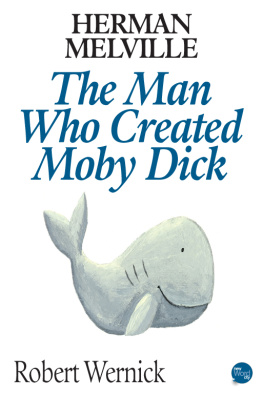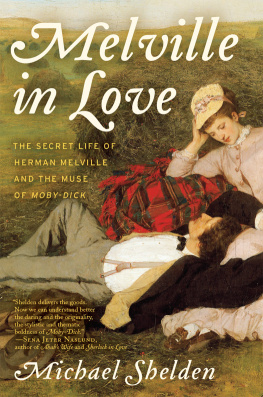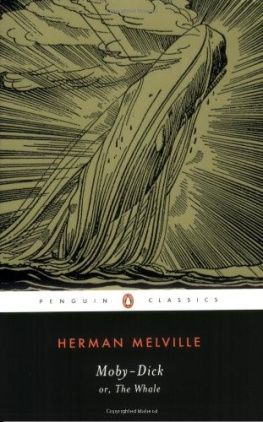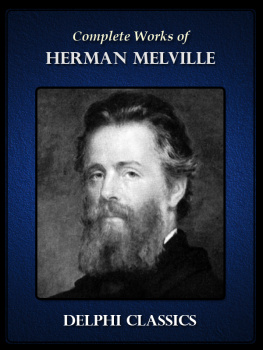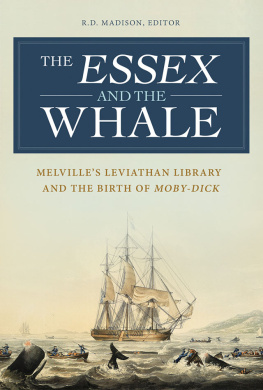Reading Melvilles Pierre; or, The Ambiguities
READING
MELVILLES
Pierre; or,
The Ambiguities
BRIAN HIGGINS
and
HERSHEL PARKER

LOUISIANA STATE UNIVERSITY PRESS
BATON ROUGE
Published by Louisiana State University Press
Copyright 2006 by Louisiana State University Press
All rights reserved
Manufactured in the United States of America
First printing
Designer: Michelle A. Neustrom
Typeface: Baskerville
Printer and binder: Edwards Brothers, Inc.
Library of Congress Cataloging-in-Publication Data
Higgins, Brian, 1943
Reading Melvilles Pierre; or, The ambiguities / Brian Higgins and Hershel Parker.
p. cm.
Includes bibliographical references and index.
ISBN-13: 978-0-8071-3226-5 (alk. paper)
1. Melville, Herman, 18191891. Pierre. I. Parker, Hershel. II. Title.
PS2384.P53H54 2006
813.3dc22
2006021947
The paper in this book meets the guidelines for permanence and durability of the Committee on Production Guidelines for Book Longevity of the Council on Library Resources. 
Contents

2. This dream-house of the earth:
Books I and II
3. The flowing river in the cave of man:
Books IIIV
4. The manly enthusiast cause:
Books VIXII
5. The Pamphlet and the City:
The Kraken Ending
6. Cobbling the Harper Pierre:
JanuaryFebruary 1852

Preface
Pierre; or, The Ambiguities, Herman Melvilles seventh book, was catastrophic for him. It lost him his English publisher, and reviewers of the American edition (1852) accused the book and the author of being mad. In the remainder of the nineteenth century, Pierre was dismissed as Melvilles late miserable abortion and characterized as repulsive, insane, and unreadable. Even after the book was rediscovered during the Melville Revival of the 1920s, it has persistently evoked critical uneasiness and often outright disdain. Nonetheless, Pierre is now generally recognized as one of Melvilles most significant works, the book nearest to Moby-Dick not only in time but also in the ambitiousness of its aims and in the power of at least some of its passages. Melville scholars and critics have yet to recognize, however, the events in Melvilles life that brought about the publication of the book they know as Pierre, the version published in 1852. Knowledge of the compositional history and the multiple, contradictory impulses that produced this version is essential to comprehending the book that had such a devastating effect on Melvilles career yet seemed to its author, in the early stages of its composition, as likely to be greater even than Moby-Dick.
In The Flawed Grandeur of Melvilles Pierre (1978), we argued that Melvilles belated decision, in January 1852, to turn the hero of his new manuscript into an author seriously damaged the work because many parts of the extensive interpolated passages were inconsistent with his original intentions. Further study of the documentary evidence indicated that Melville completed the book in a short form about the end of 1851, before receiving a contract from the Harpers for it. Intrigued by the Melville-loving Maurice Sendaks fascination with Pierre, Parker seized the opportunity to let him illustrate something unique, a radical text as close as possible to Melvilles original version of the novel, one which omitted all the late-added sections on Pierre as author. This Kraken edition of Pierre (HarperCollins, 1995) was, of course, designed as a nonce text, intended only to complement, certainly not to replace, the standard Northwestern-Newberry edition (1971). Having this short version of Pierre in print, Parker argued, will at last make it feasible for lovers of Melville to comprehend his original design for the book and his original achievements in it (xii). The edition, Parker hoped, would spur readers to take account of evidence that would let them think sequentially about Melvilles life and works in the months following the publication of Moby-Dick. In this book, we ourselves attempt to comprehend Melvilles original design for Pierre and his original achievements. We attempt, that is, to describe the experience of reading the Pierre that Melville first completed.
In the course of the book we tell the story of a crucial period of Melvilles creative life, from the fall of 1851 to the spring of 1853; proper understanding of Pierre, we argue, demands that this biographical evidence be taken into account. In chapter 1, we focus on Melvilles composition of the first version of Pierre in late 1851, setting the book in the context of his life and literary career. In chapters 25, we analyze what we can plausibly reconstruct of this original version (the version represented in the Kraken edition). In our 1978 essay we gave a sequential reading of the published 1852 version of the novel, even though we argued that Melvilles belated decision to turn Pierre into an author had introduced major inconsistencies into the work. Here, in chapters 25 we read the same Pierre that students of Melville are all familiar with, with the big exception that we read nothing about Pierre as an author. In the process, we demonstrate both the cohesion and the eventual discontinuities of this original version of the novel. Then, in chapter 6, we briefly set forth the circumstances of Melvilles abrupt decision to declare that Pierre had been a juvenile author and his further decision to portray Pierre as an author still young but forced too early into would-be maturity. More thoroughly than we did in 1978, we next analyze these added passages on Pierre as an author, demonstrating that, while some of them are powerfully written, they frequently contradict or obscure Melvilles original intentions and achievements. Chapter 7 gives a brief account of the publication and reception of the book in 1852 and their effect on Melvilles subsequent career. In chapter 8 we focus on critical assessments of Pierre since the late nineteenth century and document the accumulation of factual information about the books composition and publication since the Melville Revivalinformation that has generally been slighted by critics.
In places we draw on material previously published in Higgins and Parker 1978, 1983, 1986, and 1995, and in Parker 1976, 1977, 1996, and 2002. Ways in which our thinking about Pierre has evolved over the last thirty years are noted in chapter 8. Unless otherwise stated, in our references to and quotations from Melvilles works we cite the Northwestern-Newberry edition of The Writings of Herman Melville.
Reading Melvilles Pierre; or, The Ambiguities
1
TOWARD A KRAKEN BOOK
i
M elville seems to have started writing Pierre; or, The Ambiguities about the time of the birth of his son Stanwix on 22 October 1851, perhaps before, perhaps soon afterward. Melvilles mother and three of his sisters were at home at Arrowhead, the farmhouse south of Pittsfield, when the baby was born, and Melvilles wife Elizabeth (Lizzie) seemed well enough for one sister, Augusta, to leave for New York City a few days later. Maria Gansevoort Melville and her daughters Helen and Fanny remained to run the household and to take care of Lizzie and the Melvilles almost-two-year-old son, Malcolm, with Helens primary duty being to serve as Hermans copyist. Melvilles own indoor chores took place only inside the barn, not the house. At Stanwixs birth Melville was completing the last of his fall chores at Arrowhead, harvesting apples, making cider, bringing home wood and chopping it for the winters fires. He finished none too soon, for on 7 November he reported to his New York friend Evert Duyckinck that he already had in full blast the great dining-room fire-place, which swallows down cords of wood as a whale does boats (
Next page

